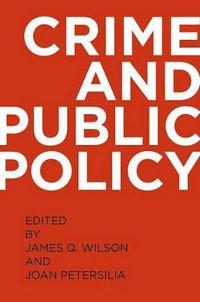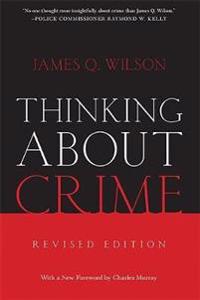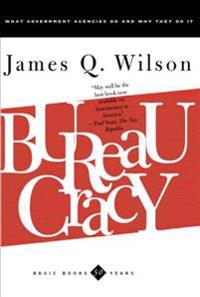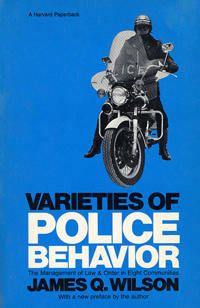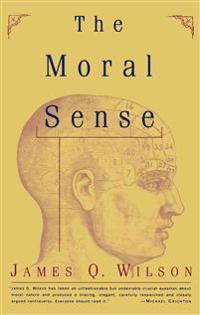Crime and Public Policy (Pocket)
avJames Q. Wilson, Joan Petersilia, James Q. Wilson
ISBN: 9780195399356 - UTGIVEN: 201101Crime in the United States has fluctuated considerably over the past thirty years, as have the policy approaches to deal with it. During this time criminologists and other scholars have helped to shed light on the role of incarceration, prevention, drugs, guns, policing, and numerous other aspects [...]
Thinking About Crime (Pocket)
avJames Q. Wilson, Charles (FRW) Murray, James Q. Wilson
ISBN: 9780465048830 - UTGIVEN: 2013-05As crime rates inexorably rose during the tumultuous years of the 1970s, disputes over how to handle the violence sweeping the nation quickly escalated. James Q. Wilson redefined the public debate by offering a brilliant and provocative new argument--that criminal activity is largely rational and sh[...]
Bureaucracy (Häftad)
avJames Q. Wilson
ISBN: 9780465007851 - UTGIVEN: 199101A leading expert explains what government bureaucracies do and why they behave the way they do.. Bureaucracy is the classic study of the way American government agencies work and how they can be made to work better. Examining a wide range of bureaucracies, including the Army, the FBI, the FCC, and [...]
American Government (Pocket)
avJames Q. Wilson
ISBN: 9780547212760 - UTGIVEN: 2009-01-22This popular brief edition text for the one-semester or one-quarter American Government course maintains the framework of Wilson's complete text, emphasizing the historical development of the American political system, who governs, and to what end. Completely up to date, AMERICAN GOVERNMENT, BRIEF, [...]
American Government (Inbunden)
avJames Q. Wilson, John J. Diiulio Jr.
ISBN: 9780618043590 - UTGIVEN: 2000-12-19Varieties of Police Behaviour (Häftad)
avJames Q. Wilson
ISBN: 9780674932111 - UTGIVEN: 199007The patrolman has the most difficult, complex, and least understood task in the police department. Much less is known of him than of his better publicized colleague, the detective. In this important and timely book, James Q. Wilson describes the patrolman and the problems he faces that arise out of [...]
The Moral Sense (Pocket)
avJames Q. Wilson
ISBN: 9780684833323 - UTGIVEN: 1997-11Argues that mankind has a moral nature, and explores such values as sympathy, fairness, self-control, and duty[...]

